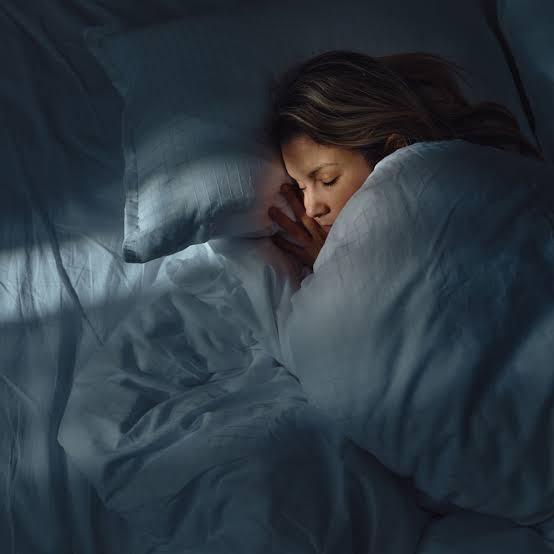Do you think you know what perfect sleep is?
It’s time to reevaluate your sleep habits. When picturing a restful night, what do you imagine?
A common misconception is that falling asleep the moment your head hits the pillow and waking up refreshed after eight hours is the ultimate goal.
However, true restorative sleep involves multiple cycles throughout the night and often includes brief awakenings.
Some might remember these interruptions; others may not. Let’s explore what truly defines rejuvenating sleep.
Sleep cycles: A nightly journey
As adults, we experience distinct sleep cycles throughout the night, each followed by brief awakenings.
Typically, each cycle lasts about 90 minutes, starting with lighter sleep stages, and gradually deepening until we enter rapid eye movement (REM) sleep, renowned for its vivid dreams.
In a typical night of restorative slumber, most deep sleep occurs during the first half of the night, while REM sleep is more dominant in the latter stages.
On average, adults cycle through five to six sleep phases each night, and it’s completely normal to awaken momentarily at the end of each cycle, which might mean waking up around five times during the night.
Although this frequency may increase with age, it remains a healthy occurrence.
If you don’t remember these minor awakenings, that’s entirely normal they tend to be quite brief and often go unnoticed, allowing you to continue your nightly journey of rest and rejuvenation.
Defining what constitutes “Good” Sleep
While it is commonly suggested that adults should aim for seven to nine hours of sleep each night, the essence of good sleep lies more in quality than in quantity.
For many, quality sleep encompasses several key factors: the ability to fall asleep within approximately 30 minutes, maintaining uninterrupted slumber without lengthy awakenings, and rising each morning feeling energized and prepared for the day ahead.
If you frequently experience excessive daytime fatigue, despite adhering to the seven-hour guideline, it may be beneficial to consult your healthcare provider.
Various underlying issues could contribute to your persistent tiredness, highlighting the importance of understanding the nuances of healthy sleep.
Improving your sleep quality is essential for overall well-being, so don’t hesitate to seek professional advice if you’re struggling to achieve a restful night’s sleep.
Prioritizing both sleep quality and quantity can lead to a more vibrant and fulfilling life.
Common sleep issues
Sleep disorders are widespread, affecting an estimated 25% of adults with insomnia. This condition often leads to challenges in falling asleep, maintaining sleep, or waking too early.
The prevalence of sleep disorders, such as insomnia and sleep apnea which involve intermittent breathing interruptions during sleep generally increases with age.
Approximately 20% of younger adults and 40% of middle-aged individuals are affected by these issues.
Fortunately, effective treatments are readily available. If you struggle with sleep problems, do not hesitate to seek the help you need to improve your sleep quality and overall well-being.
In addition to sleep disorders, chronic health conditions like persistent pain and certain medications can significantly disrupt your sleep patterns.
Additional factors such as disturbances from children, pets, or noise from traffic may lead to unwanted “forced awakenings.”
These interruptions can hinder your rest quality, resulting in feelings of dissatisfaction and morning fatigue.
If these disruptions leave you frustrated or anxious, affecting your daytime productivity, it may be time to seek professional help.
Difficulty rising in the morning can arise from various factors, including inadequate sleep, irregular sleep schedules, or misalignments with your internal body clock.
If you often struggle to wake up for work or family commitments, consulting a sleep psychologist could provide much-needed support in addressing these challenges.
The role of smartwatches in sleep tracking
Smartwatches and other sleep-tracking devices have become increasingly popular for gaining insights into our sleep patterns.
However, it is crucial to note that the accuracy of these devices can vary significantly, especially when it comes to monitoring different sleep stages.
While they offer a useful general overview of our sleep patterns, they do not provide perfectly precise measurements of sleep stages.
In contrast, in-laboratory polysomnography (PSG) remains the gold standard for assessing sleep.
This detailed method measures multiple variables, including breathing patterns, oxygen saturation, brain activity, and heart rate during sleep.
Instead of focusing on nightly data and specific sleep stages, it may be more beneficial to take a broader view of your sleep habits by tracking your bedtimes and wake-up times over an extended period.
Recognizing these patterns can empower you to identify and adjust behaviours that adversely affect your sleep quality, such as your bedtime routine and the overall sleep environment.
If monitoring your sleep data causes you anxiety, this approach may not prove helpful.
Most importantly, should you have concerns regarding your sleep health, it is essential to consult your general practitioner (GP), who can guide you to a specialized sleep health provider for further assistance.



